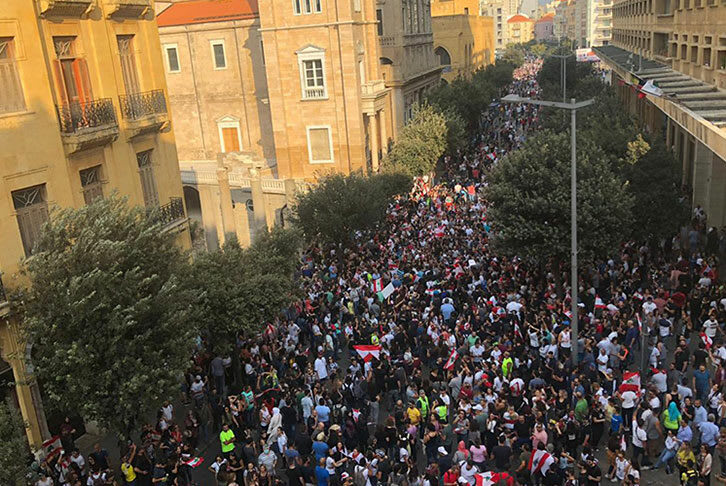Lebanon
We have been working in Lebanon since 2009 to help communities build trust, peace and address the concerns and conflict issues facing their country.
This involves working inclusively with all communities, including vulnerable Lebanese as well as other nationalities, bringing together a diverse range of people to support social stability and discuss and resolve community tensions.
We work with community leaders, authorities and local women’s and youth networks to help address the priorities of communities and build safer and more stable communities. And to also reduce the risk of tensions among Lebanese communities associated with the deepening economic and political crises, as well as the spill over effects of the conflict in Syria.
We work with a range of local, national and international humanitarian and development partners, helping to integrate social cohesion, Do No Harm, peacebuilding and conflict sensitivity in work across various sectors such as education, health, livelihoods, sustainable economic development, gender and climate change.
Conflict context
Since the nationwide protest movement in October 2019, Lebanon has been experiencing intersecting economic, political and security crises. The volatile dynamics have been exacerbated by COVID-19 and the Beirut Seaport Blast of 4 August 2020. In parallel, relations between Lebanese of different backgrounds deteriorated significantly along with relations between the Lebanese and refugees.
Gender, class and age are all points of division among communities in Lebanon, often triggered by unresolved memories from the civil war and framed within escalating geopolitical tensions.
These concurrent political, economic, security and health crises have had devastating impacts on people’s safety, livelihoods, and dignity, especially for the most vulnerable Lebanese and refugee families, as well as jeopardising the country’s stability.
The economic downturn and the devaluation of the Lebanese lira has pushed more than fifty percent of the population below the poverty line, with an estimated 90% of Syrian refugees living in extreme poverty. Increased economic insecurity has led to a growing sense of hopelessness and rising incidents of theft and harassment due to the worsening livelihood conditions.
Despite these challenges, there is an opening for civil society to contribute to building trust, improving relationships, developing sustainable economic models and supporting good governance.

Peace education in Lebanon
In Lebanon, young people face high levels of violence within education and schools, which mirror social issues seen outside of education. By working with the education sector and partners, we are supporting education and child protection actors to address social tensions and reduce violence in education.

All trends pointing to a downward spiral, searching for hope in Lebanon’s compounding crises
Despite the economic crisis in Lebanon, there are clear opportunities to support positive change and rebuild social ties. Read our Lebanon Country Director Ruth Simpson’s analysis for the 2021 Fragile States Index.






